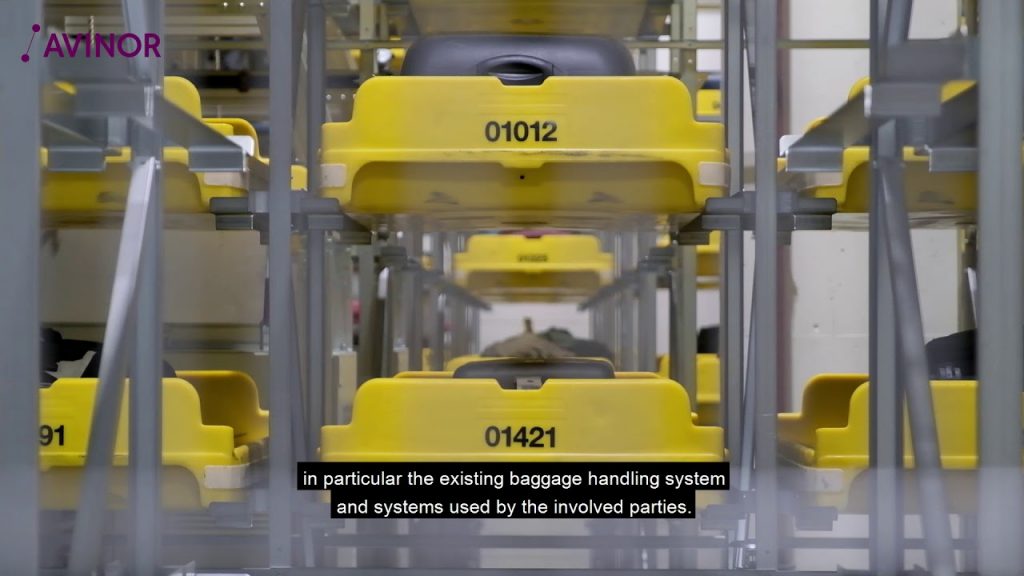Automated Baggage Handling (ABH): Revolutionizing the Aviation Industry
Introduction:
In today's fast-paced world, the aviation industry is constantly seeking innovative solutions to streamline operations and enhance customer satisfaction. One such game-changing technology is Automated Baggage Handling (ABH), which offers substantial benefits for airlines, handling companies, Avinor, and individual travelers. In this article, we will explore the significant advantages of ABH and its impact on the industry.
Explanatory Style:
Automated Baggage Handling (ABH) systems have emerged as a revolutionary solution to the challenges faced by the aviation industry. With increasing passenger traffic, efficient baggage handling has become a critical aspect of airport operations. ABH systems incorporate advanced technologies and intelligent mechanisms to automate the process of baggage transportation, sorting, and loading onto aircraft.
The benefits of ABH are manifold. Firstly, it eliminates the manual handling of baggage, reducing the risk of human errors and ensuring greater accuracy in luggage routing. This results in fewer lost or misplaced bags, leading to improved customer satisfaction.
Secondly, ABH systems significantly enhance operational efficiency. Through the use of cutting-edge technologies such as conveyor belts, robotic arms, and barcode scanning, these systems can process a large volume of baggage in a shorter span of time. This not only reduces delays but also optimizes the overall airport workflow.
Thirdly, ABH systems offer enhanced security features. With the integration of state-of-the-art scanning and surveillance technologies, these systems can detect and prevent unauthorized items from being transported. This ensures passenger safety and compliance with international security standards.
Moreover, ABH systems contribute to a greener environment. By optimizing baggage flow and reducing energy consumption, these systems help in minimizing the carbon footprint of airports. This aligns with the global efforts towards sustainable aviation.
Case Study Style:
To understand the real-world impact of ABH systems, let's examine the case of a major international airport. Prior to implementing ABH, the airport faced significant challenges in managing the increasing baggage volume. Manual handling led to frequent errors, delays, and customer complaints. However, after the installation of an advanced ABH system, the airport witnessed remarkable improvements.
The automated system seamlessly handled a massive number of bags, accurately sorting and routing them to the respective flights. This resulted in a significant reduction in lost or misplaced luggage, leading to a surge in customer satisfaction. The operational efficiency of the airport also witnessed a remarkable boost, with reduced processing times and improved workflow.
Furthermore, the enhanced security features of the ABH system enabled the airport to strengthen its baggage screening processes. This ensured compliance with international regulations and provided passengers with a heightened sense of safety.
In-depth Analysis Style:
By delving deeper into the technical aspects of ABH systems, we can comprehend their functioning and underlying benefits. These systems employ a combination of cutting-edge technologies, including advanced sensor networks, artificial intelligence, and machine learning algorithms.
The process begins with the self-tagging of baggage by passengers, which minimizes errors and enhances efficiency. As the bags move along the conveyor belts, sensors scan the barcodes, ensuring accurate tracking and routing. The intelligent software analyzes the data and determines the optimal route for each bag based on flight information.
Robotic arms and mechanical systems are integrated into the process, enabling seamless transfers and loading onto aircraft. The entire operation is monitored through a centralized control system, which provides real-time information and alerts operators in case of any anomalies.
Predictive/Foresight Style:
Looking ahead, the future of ABH systems appears promising. As technology continues to evolve, we can expect even more advanced features and capabilities. For instance, the integration of Internet of Things (IoT) devices and Big Data analytics will enable airports to collect and analyze vast amounts of data. This will facilitate predictive maintenance, allowing operators to identify and address potential issues before they impact operations.
Furthermore, the incorporation of biometric identification systems and facial recognition technology will enhance security and enable seamless baggage handling processes. Passengers will be able to track their bags in real-time through mobile applications, ensuring peace of mind during their travel experience.
Conclusion:
Automated Baggage Handling (ABH) systems have revolutionized the aviation industry, offering substantial benefits for airlines, handling companies, Avinor, and individual travelers. The automation and integration of advanced technologies have transformed baggage handling, leading to improved accuracy, operational efficiency, security, and environmental sustainability.
As airports worldwide continue to embrace ABH systems, the industry is witnessing a paradigm shift. The future holds immense potential for further advancements, ensuring a seamless and hassle-free travel experience for passengers.
Check the coil packing solution with a leading manufacturer for the professional solution just here: [Insert URL] (remove the URL and contact information) Handling Machine
"Efficient and Streamlined: Revolutionizing Baggage Handling with Automated Systems and Advanced Equipment"
